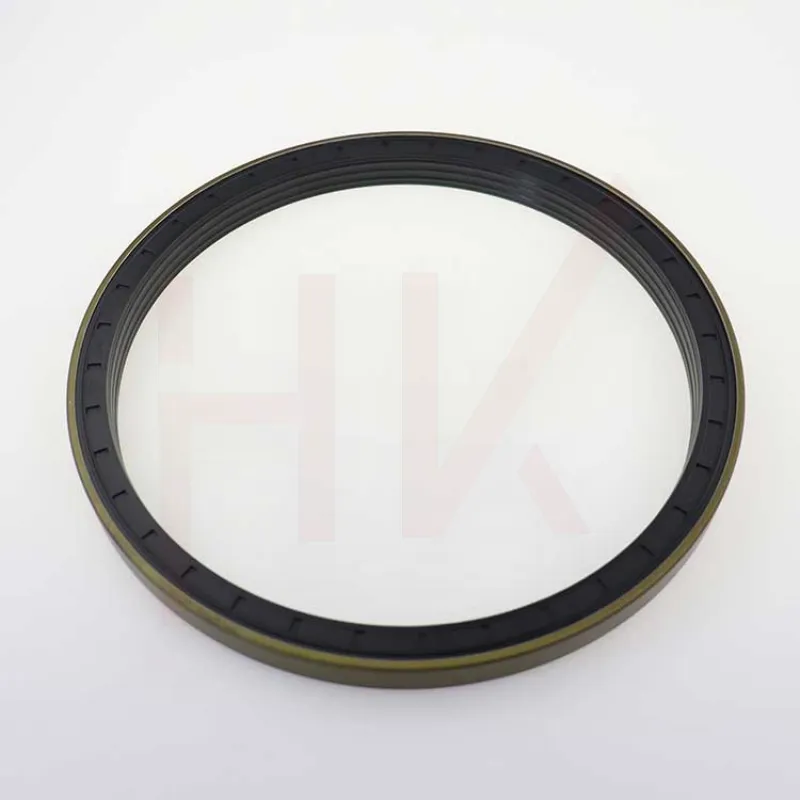నవం . 18, 2024 04:57 Back to list
Understanding Oil Pump Seal Functionality and Importance in Engine Performance and Maintenance
Understanding Oil Pump Seals Importance and Functionality
Oil pump seals are essential components in various machinery and automotive systems, playing a crucial role in maintaining efficiency and performance. These seals are designed to prevent oil leaks from the oil pump, ensuring that the lubricant remains within the designated system, thus safeguarding against potential damage and enhancing operational sustainability.
An oil pump, as its name suggests, is responsible for circulating oil throughout an engine or mechanical system. Its primary function is to ensure that all moving parts are lubricated, reducing friction and wear, which can lead to premature failure. The oil pump seal, in this context, is a barrier that prevents oil from escaping the pump and ensures that proper pressure is maintained within the system.
There are several types of oil pump seals, including lip seals, O-rings, and rotary seals, each designed for specific applications and operating conditions. Lip seals are commonly used for their excellent sealing properties, providing a tight fit between the rotating shaft and the housing. O-rings, made from materials like rubber or silicone, are versatile and can be used in various sealing applications. Rotary seals are designed for dynamic applications where rotational movement occurs, making them ideal for oil pumps.
oil pump seal

The material selection for oil pump seals is critical, as it directly impacts performance and longevity
. Typically, seals are made from elastomers, which can withstand a range of temperatures, pressures, and chemical exposures. Fluoroelastomers, for instance, are favored in high-temperature environments due to their excellent resistance to heat and oil degradation.One of the primary functions of oil pump seals is to prevent leaks, which can lead to several detrimental consequences. Oil leakage can cause a decrease in oil levels, leading to inadequate lubrication and increased friction among engine components. This can ultimately result in overheating, reduced efficiency, and potential engine failure. Additionally, leaks can pose environmental hazards, contaminating soil and water sources.
Maintaining oil pump seals is vital for ensuring the longevity of the oil pump itself and the entire system it supports. Regular inspections can help identify wear and tear, allowing for timely replacements before catastrophic failures occur. Signs of a failing oil pump seal may include oil spots under the vehicle, a drop in oil pressure, or unusual noises coming from the engine.
In summary, oil pump seals are integral to the functionality of various machines, ensuring the efficient operation of oil pumps while preventing leaks and maintaining system integrity. Understanding their importance, types, materials, and maintenance is crucial for anyone involved in machinery management or automotive care. By ensuring these seals are in good condition, operators can enhance performance, reduce the risk of damage, and promote sustainable machinery practices, making oil pump seals a vital component in today's mechanical systems.
-
Understanding Oil Seals and Their Role in Machinery Efficiency
NewsApr.08,2025
-
The Importance of Seals in Agricultural and Hydraulic Systems
NewsApr.08,2025
-
Essential Guide to Seal Kits for Efficient Machinery Maintenance
NewsApr.08,2025
-
Choosing the Right TCV Oil Seal for Your Machinery
NewsApr.08,2025
-
Choosing the Right Hydraulic Oil Seals for Reliable Performance
NewsApr.08,2025
-
A Comprehensive Guide to Oil Seals and Their Applications
NewsApr.08,2025
-
The Importance of High-Quality Oil Seals in Industrial Applications
NewsMar.26,2025
Products categories
















